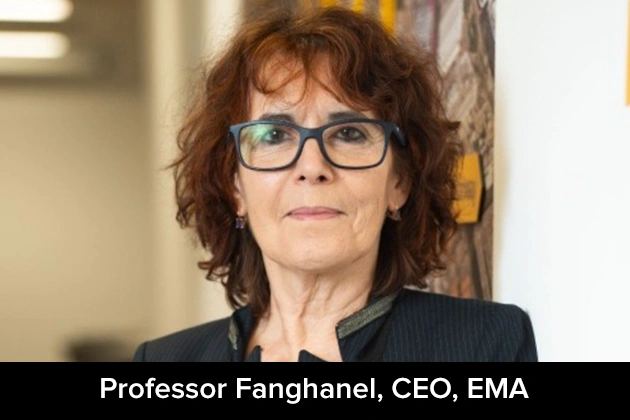The future of entrepreneurship and global business growth is determined by the professionals and leaders we shape today. According to The Business Research Company, the Global Educational Services market size is expected to reach $5126.09 billion by 2029 at 7.3%, including colleges, business schools, and other educational institutions.
In this highly competitive business education landscape, very few business schools manage to leave a mark in helping students identify their potential and push their boundaries to exceed their ambitions. École de Management Appliqué (EMA) is among those educational institutions that have made a place for themselves in the global education world.
Incepted in Paris in 2004, EMA stands as a torchbearer in academic excellence. As the CEO, Professor Joelle Fanghanel takes pride in offering state-of-the-art courses to students in management, specializing in finance, law, cultural creativity, and economics sectors. As a thought leader, Fanghanel demonstrates an enduring commitment to institutional change, driving meaningful student outcomes and access to education. With EMA, she is excelling in delivering world-class business education.
The CEO Views recognizes her unparalleled contribution to the field of business education, honoring her with the title of “Thought Leadership Award 2025.” This story takes us through her leadership journey, highlighting moments and works that validated her as a true thought leader.
An Interest Stemmed from Business Education
Professor Fanghanel’s interest in business education stems from her deep belief in its power to transform lives, not just by teaching business fundamentals, but by shaping the next generation of leaders who will drive change across industries. In her words, “I’ve always
been fascinated by the interplay between strategy, innovation, and human potential.” She believed business education, when delivered right, can tap into all three. EMA doesn’t only give theoretical teaching, it prepares students to lead in real-world contexts, even under high pressure. The challenge to make education both intellectually rigorous and deeply human drew Fanghanel in and keeps her motivated.
Creating Meaningful Change
Driving meaningful change through leadership in higher education was deeply rooted in Professor Fanghanel’s professional leadership. Each milestone in her professional journey has strengthened her belief in people as a business’s most valuable asset and the value of partnerships with students to progress any project.
From leading departments, services, and graduate schools to moving into senior management positions in charge of the research and international portfolios, EMA established a platform to merge strategic thinking with purpose-driven education. She has developed programs, helped reposition institutions, and led international teams to better reflect the realities of today’s learners and tomorrow’s leaders.
Embodying Thought Leadership
According to Fanghanel, thought leadership is about offering clarity. To her, it means being insightful, spotting trends before they completely emerge. Fanghanel helps others navigate these trends with confidence and purpose. “I strive to embody this by staying engaged with the industries our students aspire to lead in, by offering content and learning experiences that are responsive to change, and by not being afraid to challenge outdated norms,” Professor Fanghanel.
EMA embedded this approach into its DNA, reminding students that they all have leadership capabilities and EMA can help them enhance that. The leadership opportunities offered by the school to its students articulate that leadership stems from behaviors and is foremostly showcased in the art of sharing ideas and observation ability. In Fanghanel’s view, thought leadership is about shaping what is next through actions and behaviors, not just commenting on it.
Reshaping Innovation and Industry Trends
As we see through Professor Fanghanel’s thought leadership approach, she emphasizes the importance of driving innovation by asking better questions, not just how we can improve existing systems, but whether they should exist in the first place. These shape trends by being bold enough to lead when others wait.
Thought leadership in education means challenging the status quo; prioritizing soft skills, investing in inperson learning even when remote learning is easier, and building character, not just competence. Under Fanghanel’s leadership, EMA views leadership as a lived experience.
Here, students learn by leading projects, solving real business challenges, engaging with professors who are active professionals themselves, and being in contact with industry. This model of the business school does not just prepare students for jobs; it trains them to shape industries with exceptional leadership.
Prioritizing Applicable Knowledge
As the Head of EMA, Professor Fanghanel has focused on delivering state-of-the-art management courses across sectors for the students. Under her unparalleled leadership, EMA has become a part of the international group Global Education, operating in 12 countries globally. The school teaches and trains its students to apply their knowledge to their work by adopting authentic work-related learning situations and placement opportunities. It offers bespoke support to enable students to succeed academically and professionally, with dedicated services that amplify students’ learning approach and career aspirations.
An Innovative Strategy to Shape Future Leaders
‘EMA’s flagship MBA Program’ by Professor Fanghanel is an innovative approach designed to meet the real demands of modern leadership. It has been shaped with flexibility, ethical responsibility, and applied learning at its core, blending academic depth with real-world experience. Through this program, students work with partner organizations, explore emerging global business issues, and engage in strategy-making, ensuring social impact and innovation.
How EMA Shaped Upcoming Professionals
Fanghanel has a continuous dedication to empowering and preparing future leaders. EMA has been fostering innovation and intellectual growth under her leadership. At the core of its mission lies a commitment to develop individuals into visionary leaders who are equipped with skills and knowledge to tackle realworld challenges.
“We view leadership as a practice rooted in ethical reasoning, cultural awareness, and critical reflection.”










